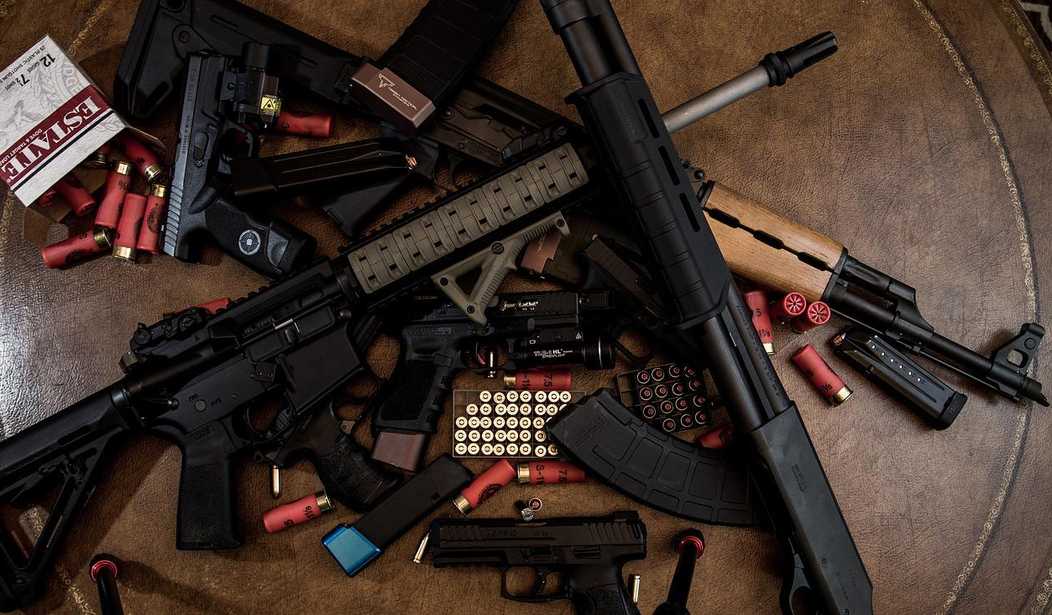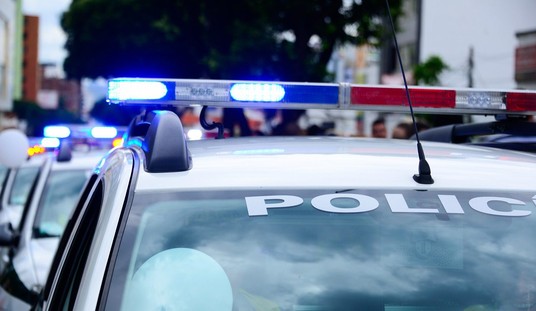There is a desperate need for some to try and make the Second Amendment a racial issue. It’s happening more and more, and those invested in this will do pretty much anything to try and make that case. Part of that is because identity politics has worked well enough for them to shut down opposition.
Another part is that as more black people buy guns and become invested in their Second Amendment rights, they have to do something or lose a key demographic needed for political victory.
But sometimes, it’s hard to imagine how some people miss the point so completely.
For example, take this op-ed at LA Progressive titled, “Racism Drives American Gun Addiction,” but then boasts the subtitle: “When Huey Newton and the Black Panthers tried to arm themselves, everyone suddenly said, ‘We need gun control.'”
So, she acknowledges the racist history of gun control–a history that doesn’t end all that far back, either, really–while still pushing the claim that gun ownership is racist?
Yeah, she really does.
But the observations by Dunbar-Ortiz, Slotkin, and others point to another reality of this deep structure, underneath the legal aspects. Culturally and psychologically, the association of guns with racial privilege and hierarchy is alive and well. Understanding this helps us understand why opposition to sensible gun laws can be so aggressive and often illogical. It also helps us distinguish between the experiences of people who have historically and currently benefitted from access to guns, such as white people, and marginalized communities whose access to guns has been most controlled even while suffering the most violence.
In 2013, Kerry O’Brien, Walter Forrest, Dermot Lynott, and Michael Daly published a study on “Racism, Gun Ownership and Gun Control: Biased Attitudes in US Whites May Influence Policy Decisions” that gives us a glimpse into how this deep structure lives inside of us, especially for white people in the context of anti-black bias. The whole study is worth your time, but the heart of the findings is this:
“After adjusting for all explanatory variables in the model, symbolic racism was significantly related to having a gun in the home. Specifically, for each 1 point increase in symbolic racism, there was a 50% greater odds of having a gun in the home, and there was a 28% increase in the odds of supporting permits to carry concealed handguns.” (“Racism, Gun Ownership and Gun Control”)
To put it another way, there are plenty of gun owners who are not necessarily racist, but the more racist a person is, the more likely it is that they will own a gun and oppose life-saving laws. The researchers noted that, if we were simply operating according to logic, it should be reasonably easy to convince US citizens to take action to address gun violence, because it would benefit their and the nation’s wellbeing.
Except the linked study has a serious flaw. It keeps referring to “symbolic racism” and stating that has a high correlation to gun ownership, thus establishing that link, but they never actually define it. While symbolic racism does have a definition (and we can only guess it’s the one they’re intending), it’s one that’s based on essentially trying to read minds and doesn’t necessarily reflect what people actually think of folks based on ethnicity. It also tends to be a left-leaning reflection of what they think opposition to certain policies mean rather than digging any deeper to understand where those sentiments come from.
So while the author is eagerly latching onto the claims of studies like this, she’s ignoring the reality of gun control; clearly, her preferred policy.
For one thing, gun control laws disproportionately impact black Americans. Want to increase costs associated with buying a gun? African-Americans are more likely to be economically disadvantaged, thus depriving them of their right to keep and bear arms lawfully. Want to make it “may issue” permitting–not legal now, mind you, but stick with me here–and minimize who can carry a firearm? That determination is made by the same law enforcement agencies that are accused by folks like the author of systemic racism.
In other words, the author here knows the history of gun control, but is willing to ignore it because it’s convenient for her to paint her opposition as the real racists.
Sorry, but we know the truth and we’re not going to roll over for her convenience.








Join the conversation as a VIP Member